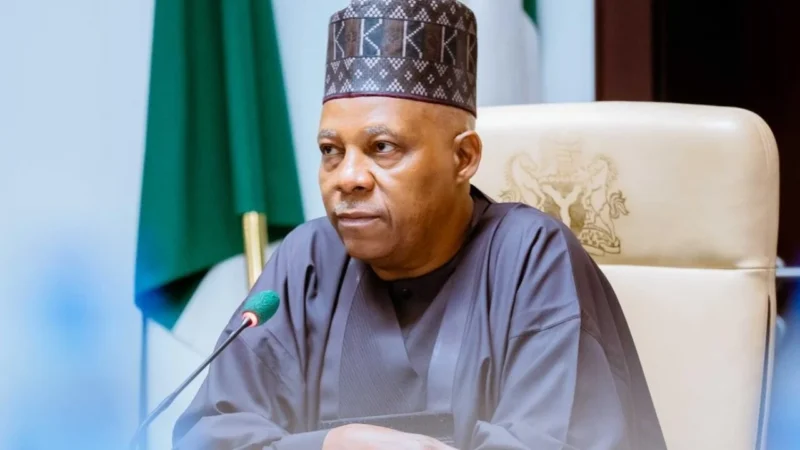Vice President Kashim Shettima has inaugurated the Presidential Food Systems Coordination Unit (PFSCU), a strategic initiative aimed at combating Nigeria’s growing food security crisis.
Amid soaring food prices and worsening economic conditions, the Nigerian government has launched this program to address urgent hunger challenges and establish a more resilient agricultural system.
Nigeria’s food insecurity has worsened due to climate change, conflict, and economic instability, leaving many families unable to afford basic food supplies. Speaking at the PFSCU inauguration, Shettima underscored the urgency of the crisis, declaring:
“The nation is facing a rare food security crisis, and the sooner we come to terms with the reality, the better.”
Addressing Nigeria’s Food Crisis: PFSCU Objectives
The PFSCU was designed to streamline collaboration among state leaders, federal ministries, and development partners, aiming to drive substantial improvements in food security. Shettima emphasized that the PFSCU’s role is to complement rather than replace the Ministry of Agriculture by fostering coordinated responses to the nation’s urgent food needs. Key objectives outlined for the PFSCU include:
- Boosting Agricultural Productivity: The PFSCU will implement initiatives to enhance farming methods, increase crop yields, and push the nation closer to self-sufficiency in food production.
- Fostering Multi-Sector Collaboration: Partnerships between state governments, private entities, and international allies are crucial to mobilize resources and technical expertise for addressing food security.
- Rolling Out Key Initiatives: The PFSCU will support programs like the Green Imperative Programme, aimed at modernizing Nigeria’s agriculture through private sector engagement.
Strategic Initiatives
In outlining the PFSCU’s strategy, Shettima highlighted several essential approaches for strengthening the country food systems:
- Modernizing Agriculture: State governors have committed to advancing farming techniques by using enhanced seeds and fertilizers to bolster productivity across regions.
- Promoting Commercial Agriculture: Significant investments in commercial farming are expected to increase the country’s food production capabilities.
- Enhancing Farmer Security: Protecting farmers from violence and ensuring their safety will encourage broader participation in agricultural activities.
Several state governors, including Bassey Otu of Cross River State and Babagana Zulum of Borno State, have expressed their commitment to turning their states into agricultural powerhouses. Governor Otu underscored the importance of agricultural modernization to improve food production, while Zulum stressed the need for coordinated strategies to address low productivity in the face of growing population.
The PFSCU’s establishment has garnered international backing, with development organizations pledging to support Nigeria in overcoming its food challenges. Dominique Koffy Kouacou, Country Representative of the Food and Agricultural Organization (FAO), reaffirmed the FAO’s dedication to helping Nigeria achieve its food security goals. Kouacou noted that both President Bola Tinubu and Vice President Shettima’s dedication to this cause has rekindled donor interest in Nigeria’s agricultural sector.










Join our Channel...